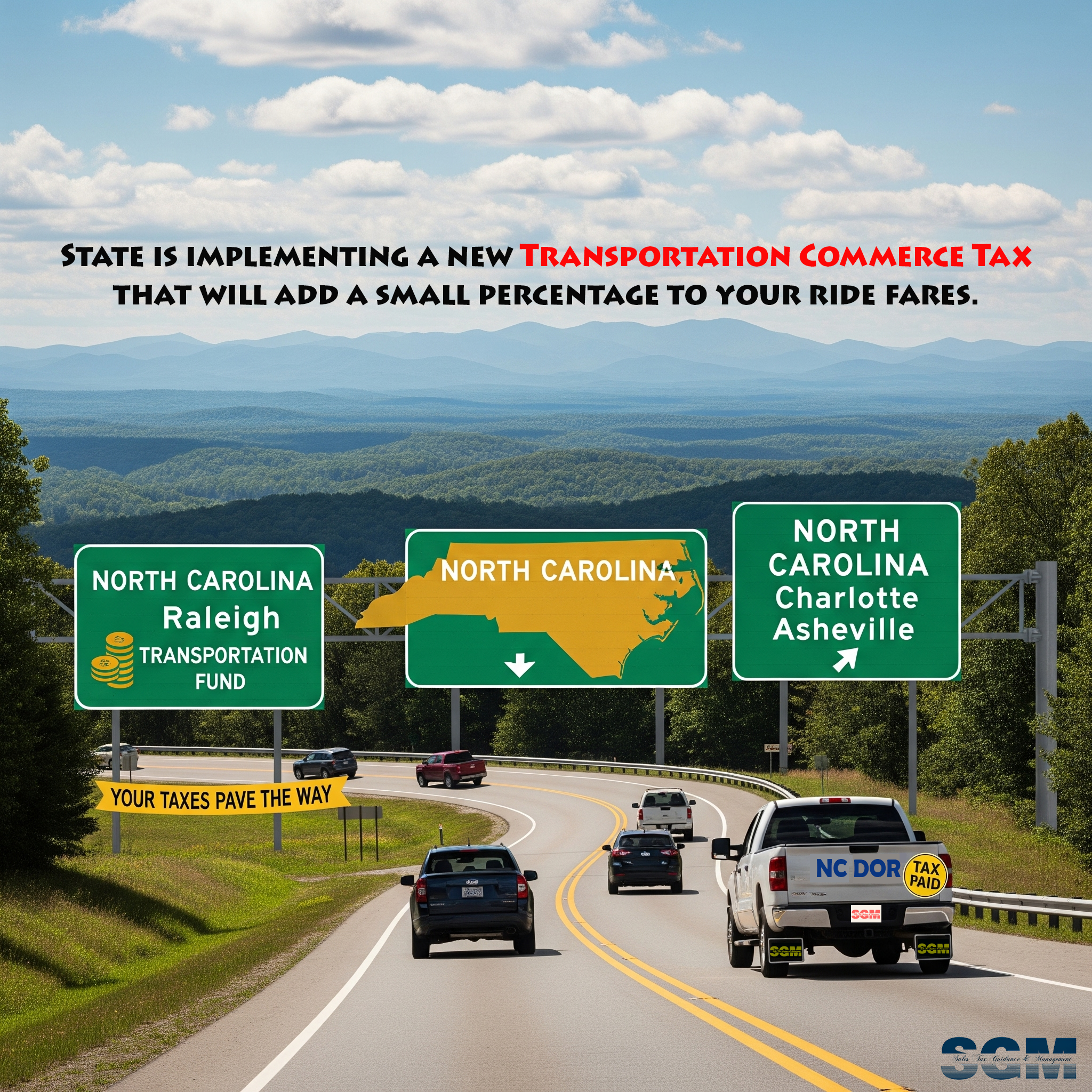On the Road Again with a New Tax: What North Carolina's Transportation Commerce Tax Means for Your Ride
Big news for anyone in North Carolina who uses taxis or ride-sharing services like Lyft and Uber! Starting July 1, 2025, the Tar Heel State is implementing a new Transportation Commerce Tax that will add a small percentage to your ride fares. While the rates are modest, it's important for both riders and service providers to understand how this new tax will work.
The Lowdown on the New Tax
Here's a quick breakdown of what you need to know:
- Who it affects: This tax applies to all "for-hire ground transport services," which includes traditional taxi services and transportation network companies like Uber and Lyft.
- Effective Date: Mark your calendars – the tax officially goes into effect on July 1, 2025.
- Tax Rates:
- 1.5% of gross receipts for an exclusive-ride service: This means if you're taking a typical solo ride, or a ride with your friends/family where you have exclusive use of the vehicle, you'll see a 1.5% tax added to your fare.
- 1% of gross receipts for a shared-ride service: If you opt for a shared ride where the service matches you with other passengers you don't know, a slightly lower 1% tax will apply. This is a clear incentive to encourage carpooling and potentially reduce congestion.
- Who collects and remits: The responsibility for collecting this tax falls on the transportation network companies and taxi services themselves. They will then remit these taxes directly to the North Carolina Department of Revenue. Riders will see the tax itemized on their receipts, similar to how sales tax is displayed.
- Purpose of the tax: The revenue generated from this new tax will go directly to the state Highway Fund, which is vital for the maintenance and improvement of North Carolina's roads and bridges. So, while it's an added cost, it's intended to benefit the state's transportation infrastructure.
What This Means for Riders
For most riders, the impact will be relatively small on a per-ride basis. For example, a $25 exclusive ride would see an additional $0.38 in tax. However, for frequent users, these small amounts can add up over time.
This new tax also subtly encourages the use of shared-ride services, as they carry a lower tax rate. If you're looking to save a few cents and don't mind sharing your ride, this could be an added nudge to choose the shared option.
What This Means for Transportation Companies
Taxi companies and TNCs operating in North Carolina were required to register with the NCDOR prior to July 1, 2025. They are now responsible for collecting the tax from their customers and accurately filing and remitting these taxes to the state.
The Bigger Picture
This new Transportation Commerce Tax is part of a broader effort by North Carolina to secure funding for its transportation needs. It reflects a growing trend among states to adapt tax structures to the evolving landscape of transportation services. While new taxes are rarely met with enthusiasm, this one aims to directly address infrastructure improvements that benefit everyone on the road.
Link: https://www.ncdor.gov/taxes-forms/other-taxes-and-fees/transportation-commerce-tax-beginning-july-1-2025/transportation-commerce-tax-faqs
So, the next time you hail a taxi or open your ride-sharing app in North Carolina, be aware of this small but significant change. Your ride is now contributing a little extra to keeping the state's transportation network moving smoothly!
Stay connect with SGM to ensure compliance with these new regulations.
Suggested Keywords:
nc transportation commerce tax, North Carolina ride tax, uber tax North Carolina, lyft tax North Carolina, taxi tax North Carolina, NC rideshare tax, new NC transportation tax, NC ride service tax rates, North Carolina Uber Lyft tax percentage, when does NC ride tax start, NC transportation tax July 2025, exclusive ride service tax NC, shared ride service tax NC, NCDOR transportation tax, Charlotte ride tax, Raleigh Uber tax, Greensboro taxi tax, Durham ride-sharing tax, Asheville transportation tax


